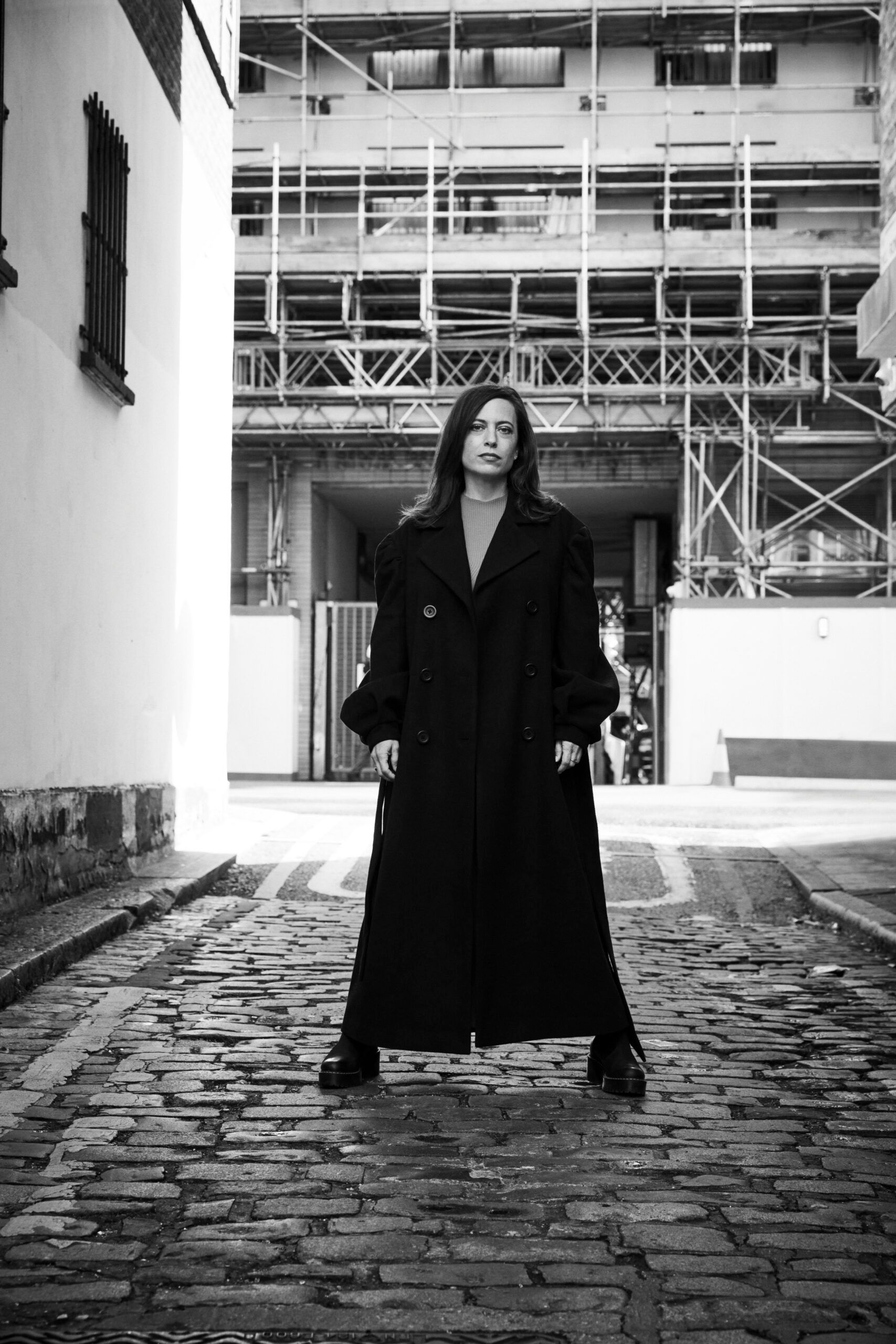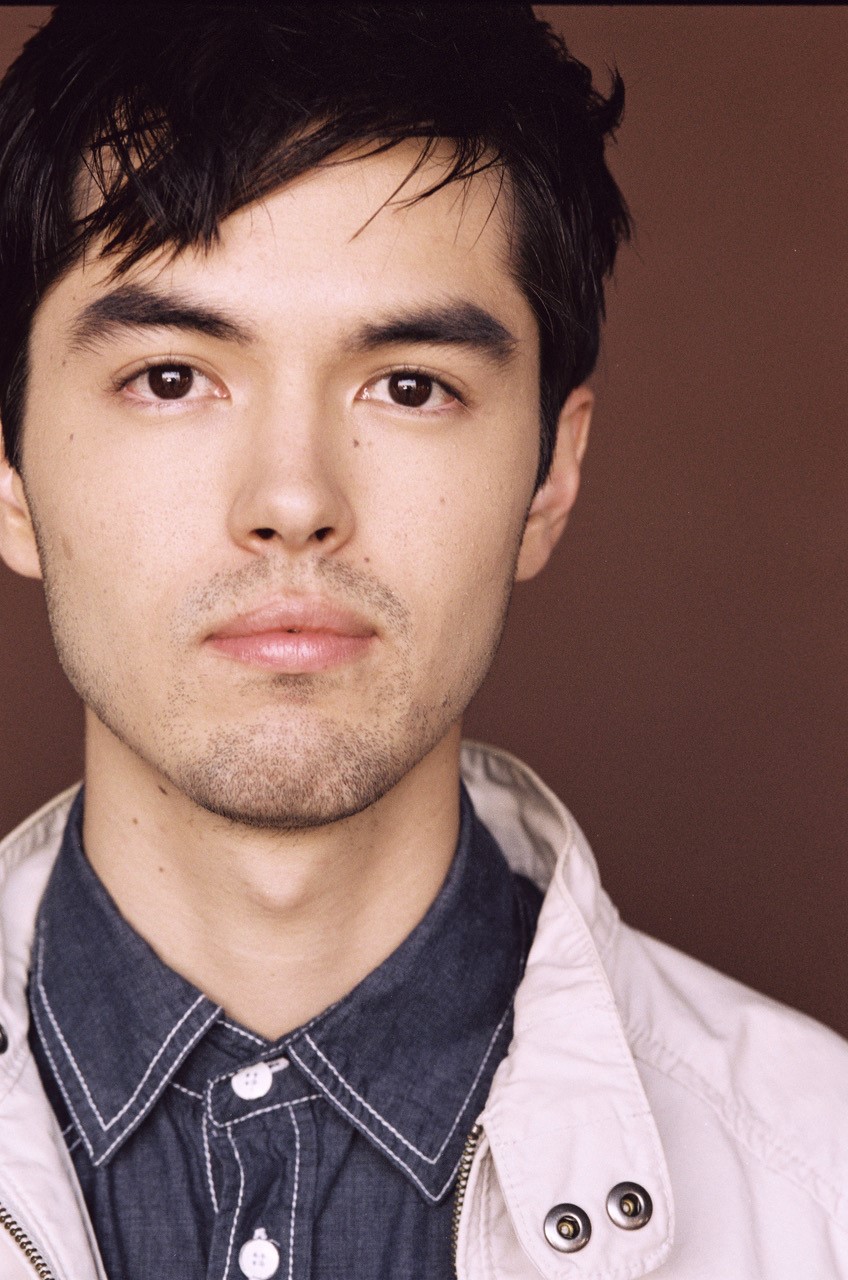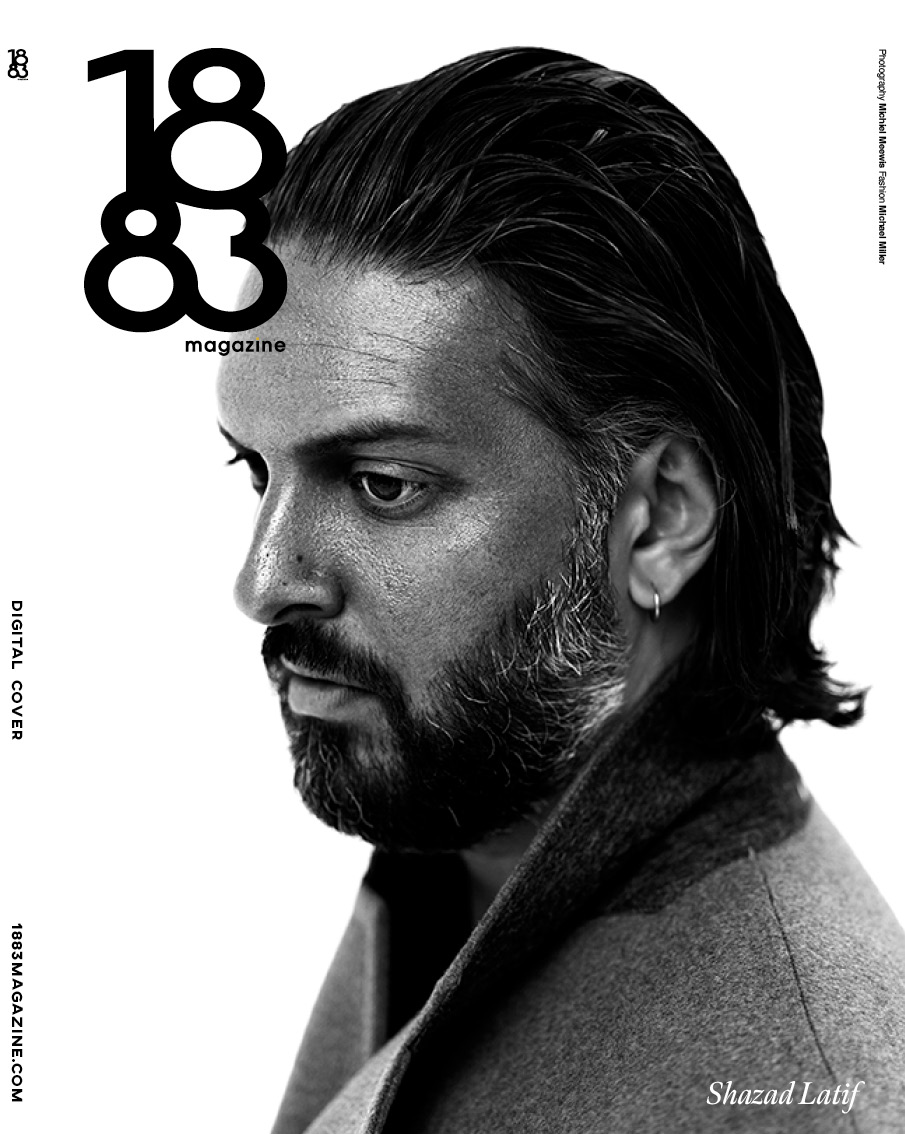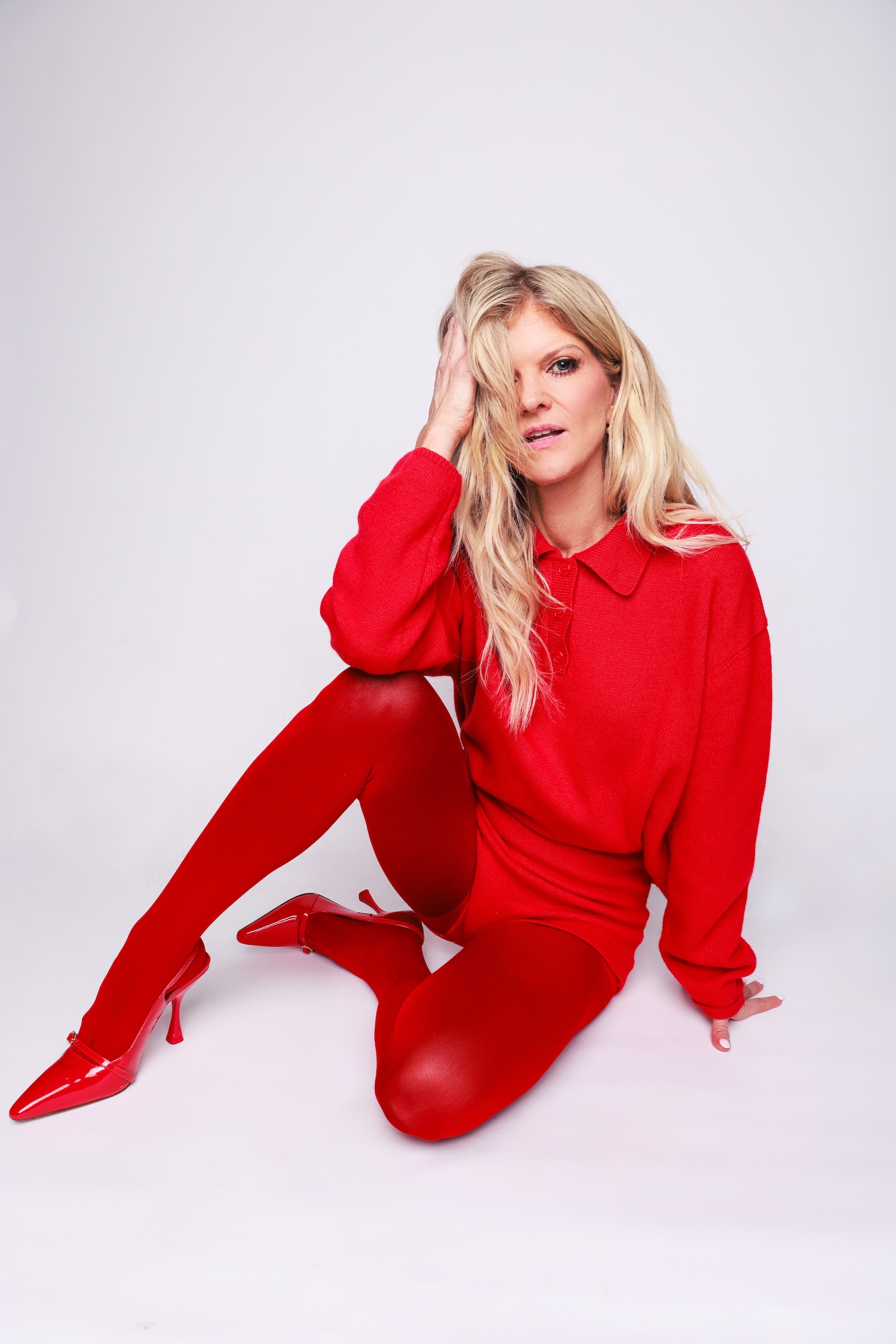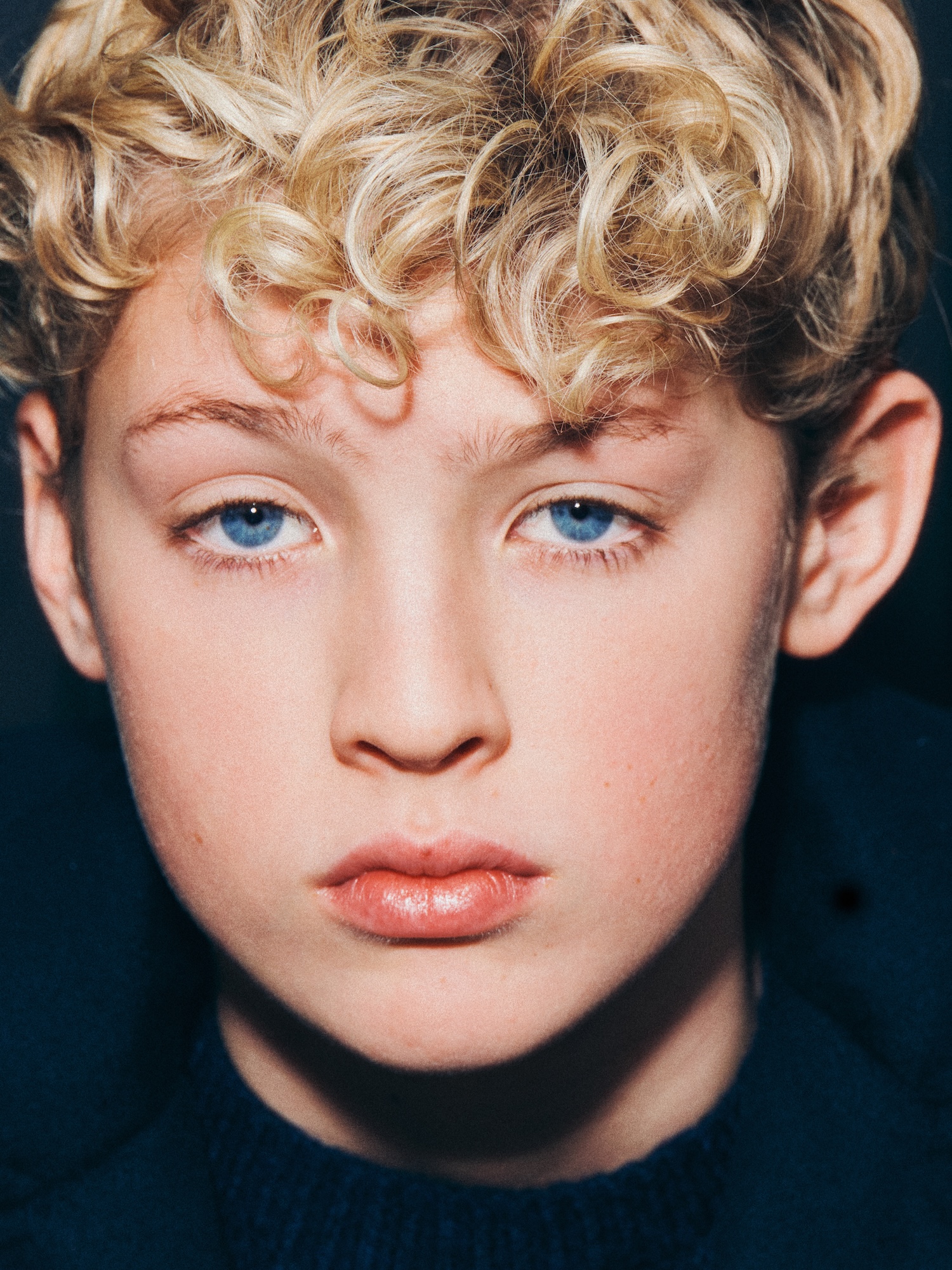With season 2 of Netflix’s The Witcher, showrunner Lauren Schmidt Hissrich both expands and improves her fantasy world and the genre as a whole.
Lauren Schmidt Hissrich is no stranger to the world of television. Her career has placed her behind the scenes of many fan-favourites. She began her career as a writer on The West Wing. When the series came to a close in 2006, she found a home as a producer on Private Practice and Parenthood. Lauren finally made the jump to fantasy with co-executive production credits on Netflix hits Daredevil and The Umbrella Academy. With years of experience under her belt, her latest project finds her rightfully at the helm.
Since 2017 Hissrich has been engrossed in the world of The Witcher. The story of Geralt, a monster hunter for hire, and those destined to be tied to him. Tapped by Netflix to guide their acquired IP, Lauren took on the roles of Creator, Showrunner, and Executive Producer, and began to assemble an all-star cast and crew to adapt Andrzej Sapkowski’s eight novels. For the streaming giant, it was a gamble that paid off. The series amassed over 76 million views in its first week and the first season left fans eagerly waiting for more. A wait that was prolonged due to an unavoidable pandemic, but which was well worth it. If season one can be considered beloved, the newly released episodes will only be more so. They are a continuation of what has come before, but there is a shift in tone and content that endears characters, both old and new, to the viewer and makes it impossible not to hit ‘Next Episode.’
Over a virtual coffee and tea, Lauren spoke with 1883’s Sydney Bolen about what it takes to adapt The Witcher saga, which character she relates to most, creating an inclusive and accessible Witcher World, and more.
To start, I wanted to say I hope you’re very proud of this season. I absolutely loved it. It’s so good. I started my year watching season one and reading the books, so this is a nice little roundup for me.
I love that. That’s really great to hear. I just had another interview that was about everything we’ve changed for season two and how we’re moving away from the books in season two, but I think it’s a season of television that stands on its own.
Oh, I recognized a lot of material from the books, to be honest. Obviously, the show is bound to be different, but I didn’t find that it was shockingly so. Speaking of the books, adapting the Witcher Saga is a massive undertaking. When you sit down in the writer’s room to start a season, what are your main objectives? How do you decide what to prioritize in such a massive story?
When we start a season – and it’s always been my goal to cover about a book a season – the writers come in, we talk about the book that we’re doing. We talk about what we liked from the story, what we want to keep from the story, what are the most important benchmarks for our characters that we want to hit. We discuss themes and events. For instance, in this season, the thing that I knew I did not want to lose was Geralt taking Ciri to Kaer Morhen. To me, that is such a fundamental part of Ciri’s experience and Geralt’s experience. Another was Triss coming to Kaer Morhen. That’s one of the most memorable parts of the book, seeing this woman at an all-male Witcher keep. Last, was Yennefer joining everyone at the end.
This season is really about the members of that found family coming together. After we’ve figured out what our main events are, the next thing we have to do is look at what the stories aren’t doing for us and figure out how we bolster them with what we need. This season there were a couple of things that I noticed. One was that Yennefer is not really in the first two-thirds of the book. You hear that she was blinded, but then somehow she’s cured. It’s all off-screen. Geralt writes her a letter asking her to come home and she shows up in his story right when he needs it. I felt like that would be a huge disappointment to fans. In season one, we did a really good job of breathing life into all of these characters and giving them all their own journeys, even before they start meeting up, so I wanted to continue that trend.
Finally, we always look for what our story will need for the future, how we can set up what we’re doing next. Season three, for instance, will be a much more political season. It’s based on The Time of Contempt, which is when all of the politics in the world really start to come into play. With that in mind, I wanted to make sure that we were putting human faces on all of the political realms. I also wanted the audience to understand why these individuals are fighting, so we really brought up the elven story this season and fleshed out those characters and their stories.
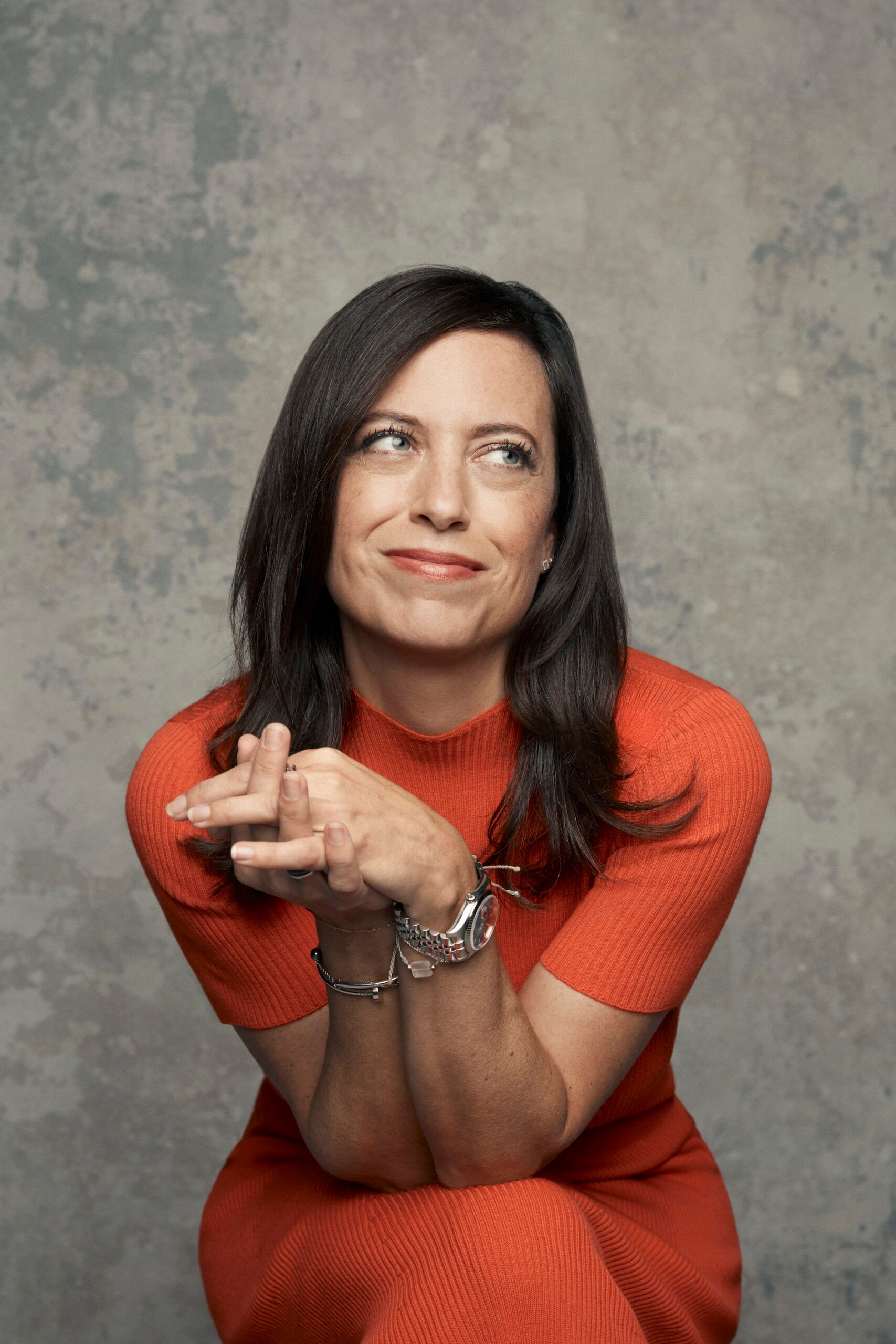
I feel like the show is able to make apparent the relationships that are almost only between the lines in the novels, which is lovely. It also creates some new ones—Cahir/Yennefer/Jaskier in episode 4 and Geralt and Istrid in Episode 5 for instance. Were these pairings simply characters you wanted to see interact or did they come together naturally to progress the story?
A little of both. I think the pairings this season are fantastic and allow us to see different sides of the characters. The Jaskier that’s with Geralt is different from the Jaskier that’s with Yennefer. That’s the human experience, right? We all have different sides of ourselves that we show. It allows us to feel like we know these characters better. The relationship between Istrid and Geralt is a great question. They were a pair that I knew I wanted to see, but I also thought honoured the books in a great way. In the books, Istrid is in one story, A Shard of Ice. His name appears from time to time. You learn that he’s been having this long love affair with Yennefer, but you don’t ever hear anything from Yennefer’s point of view until that story. Then you don’t hear anything about him after. We decided to introduce him in season one as a bigger character and the historian of our world. He was always a scientist. He’s constantly looking at things that happen in the world around him, trying to piece together the mysteries of the monoliths or looking into the Elven struggle. We thought that was a really helpful role to have. He allows the audience to step back and see how what they’re watching fits into the larger picture. I think there’s so much to milk from Geralt and Istrid together and their realization that they’re both in love with the same woman. Yet, it’s not the focus of the scene. They are together for a purpose. Istrid is researching. Geralt’s trying to understand what’s going on with Ciri. In a simple conversation, they realize not only are they in love with the same woman, but Geralt realizes Yennefer is alive. I think it is one of the most powerful moments in the season. Henry [Cavill] performs it beautifully understated and portrays that emotional punch it needed.
I was really excited to see it. It was an excellent addition.
Thank you! Episode 4, which features Cahir and Yen[nefer] was not initially planned. We had crafted a Yen story. Cahir wasn’t originally in Aretuza in episode one. But we realized we had an opportunity to pair these two characters together. They’re both so single-minded and myopic in what they’re trying to do. This season, Yen is on a journey of complete self-fulfillment. She’s missing something and she needs to get it back. She doesn’t care who gets hurt in the process because this thing is her identity. Cahir, similarly, is separated from Nilfgaard. We’ve only seen him serving the White Flame and not thinking for himself. We put them on a journey together because they reflect each other. That screaming argument between them in that courtyard is incredible. People were tearing up on set when we were shooting it because these two people weren’t able to look at themselves, but were able to hold a lens out for the other. It shifts both of their journeys after that point. When we realized we had the opportunity for that story, we went back in time and started making sure Cahir was woven more organically into the first three episodes.
I’m so glad you mentioned the screaming match in the courtyard. Out of the first six episodes, four is my favourite. I screamed out loud multiple times for various reasons. But, Yen’s mini-rant about strength, power, and love really stuck out to me. It’s short but powerful. Within the show, she faces a simple dilemma that a lot of modern women have to face. We’re expected to choose one of the three. Following your career, you’re very open about your roles as mentor, showrunner, and mother. It seems you manage to balance them well.
Thank you for saying that. It is something that I try to balance, but I’ve also had to give up the idea of having it all the time. I think that is a myth and a fairytale that women are sold to believe they can do it all and have it all. The truth is there are great sacrifices involved. I’m currently in London. My children are in Los Angeles. I had to leave two days ago to my eight-year-old crying and saying, “why do you always have to go?” It’s awful. That is part of the sacrifice of being the mom that I want to be and also having this career that I love. I’m constantly telling my children how much I love my job, that I would never leave them for something that I didn’t love and that I didn’t feel like was important, that I didn’t feel like I needed to fulfill me and to make me happy. I tell them I’m happy that I have other roles outside of being a mom because I want them someday in their own lives or in their partner’s lives to be able to encourage that same thing. One role doesn’t have to dominate all parts of you. I love that you love that line.
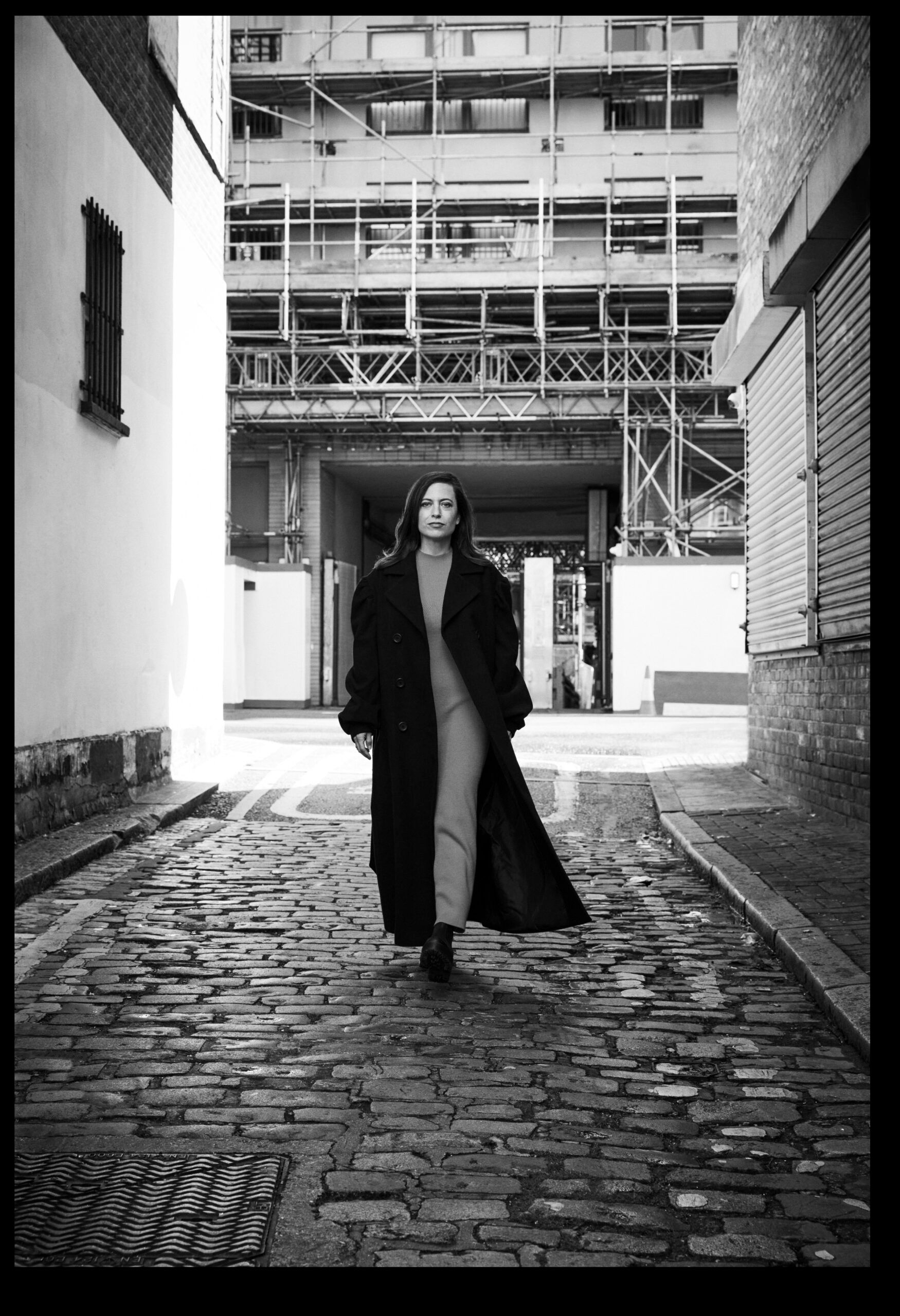
What advice would you give Yennefer in regards to her journey this season?
I don’t think Yen is in a place this season where she believes that she wants it all. She still thinks in a very black and white manner. In season one, we watched her choose power over having a baby. The second that she gives up being able to have children, what she wants is to have children and she is then willing to give up anything to do that. I don’t think that she sees things in a macro way yet. Her journey in the show is to realize that she does not actually have to give up being herself to also add this role of being a mentor/ mother figure to Ciri. Her journey is about her realization that she can have all of those things if she’s willing to sacrifice parts of each of them. My advice to her would be to find your priorities without giving yourself up. I’ve always described my personal fulfillment as a puzzle. I need a lot of different things. I need to be a mom. I need a job. I need alone time. I need to write no matter what. I need to see my girlfriends and be lifted in that space. If one piece of that puzzle is missing, nothing feels as good. It’s only when all of those pieces are properly in place that I feel like I can truly shine. I think that’s what Yennefer is getting to this season.
Yen is my favourite character in the show.
It’s hard for me to say I have a favourite character, but I relate to Yennefer’s journey the most. In terms of having to force herself out of that myopic point of view to see things as part of a bigger picture.
I definitely agree. Before we move away from episode four, I just wanted to say that I have a disability. Seeing the character of Dermain be deaf for the sake of having a diverse and realistic universe was lovely. I really appreciated it.
Thanks. I think that is something we as a production are turning more and more attention to. Hopefully, much of the world of entertainment is doing the same. Not just saying, “well, this is a deaf character and therefore we’re going to cast a deaf actor,”- which is great as well, by the way. Anytime we can show representation is amazing. I feel like we’ve done that well with our cast but also auditioned disabled actors for any role. The character was written as speaking and hearing. When we got that audition tape, it was so moving and so beautiful. I very quickly started to think, “okay, we haven’t established a sign language in our world, but there would be one for people who can’t speak. Could we craft the scene in a way that the audience can still be on this emotional journey?” The answer is yes. The answer is always going to be yes. It’s something that we want to do more and more often. Fantasy has been gatekept a lot from certain types of people, for certain colours of skin, for certain genders and sexes. We can do better than that and we have an opportunity to do better than that.
I’m a big fantasy nerd. I love that genre, I always have. Netflix as a company has been doing a great job with their fantasy shows, but one of the things that makes me love the Witcher franchise is how female-driven it is both on-screen and behind the scenes. Was that what drew you to the story in the first place?
No, but it very quickly became an important part of how I wanted to develop it. I was drawn to The Witcher above other fantasy material because I liked that it didn’t always take itself too seriously. I find, as much as I love fantasy, it’s a very earnest genre. It’s a genre about saving the world or changing the course of history. The best fantasy is a reflection of our real world. It has stakes, everything feels like life and death. What I love about The Witcher is there are stakes and yet it’s just as important to pay attention to the small story where people are just getting up and going to work every day. I loved the dry wit and the sense of having to keep pushing on and finding new motivations in order to keep going even when the world feels like shit around you.
I thought Sapkowski’s female characters were incredibly strong. They are portrayed in a way that I hadn’t yet seen in fantasy. They’re not idealized. They’re not perfect. Their flaws are what lead to their greatest strengths. I think it’s a really beautiful representation of women. I wanted to take those women and make sure that they stayed at the center of our stories alongside Geralt because I did continue to feel like, as strong as these women were, they weren’t always presented through their own lens. They were presented through Geralt’s. That’s just a matter of point of view of the storyteller. Coming in as a woman who is telling the story, I wanted to make sure that the lens was turned on them just as much as it was on Geralt because I strongly believe that the more interesting all of our characters, the better their interactions are.
I’ve spoken with other cast members from the show and read people’s wrap posts. One thing I’ve noticed is that most people at least touch on how lovely it is working with you.
Wow. That’s really nice to hear first of all. [laughs]

Being a showrunner is something that you’ve worked up to. What do you think is the number one thing you learned during your career that helps you execute this role so successfully?
Two things come to mind. The first is just being a kind and respectful person. I think most people that work with me would say that even before I was a mother, I was maternal. I love making sure everyone else is okay. I am one of those people. I also have to be okay. I can’t put myself on the back burner. It is important to me that people are treated well and are given space to be their best. If you trust people to be their best, they will show up for you. I sold The Witcher in August of 2017, so I’ve been doing it for a while. In the beginning, I wanted to prove myself. I thought that proving myself meant doing everything myself and showing that I deserved this job because I could do it all. I was being a martyr for it. When you try to do everything yourself you’re not that successful because you only have so much bandwidth is human and you underutilize this amazingly talented team you’ve hired to do their jobs.
The thing I would say, and the thing that I have changed about how I’ve done this job from previous jobs, is that I’ve learned to step back and empower people in a new way. I think people always felt liked by me. I think people always felt respected by me. Now, I feel like people feel trusted. I don’t micromanage them. I am very, very clear. I’m really decisive. I’ve become much better at articulating what I like and don’t like. That being said, I think this team has grown so beautifully. I think we’re a rare project when it comes to television in the UK in that a lot of our crew stayed the same because people wanted to come back. This is so cheesy, but Geralt and Ciri’s relationship in season two is all about being vulnerable together and learning to trust each other. What that takes is being open and honest. That’s the relationship we have behind the scenes as well. I trust people to do their jobs. I allow myself to be completely vulnerable in front of them. If I’m missing my kids or I’m having a shitty day I am open about what I’m feeling, and that permits them to do the same. It sounds cliche to say it’s a big family but I think that it is. I’m even more proud of this season belcause I love the people behind it and everything that they’ve poured into it.
That was all so lovely to hear, I must say. It sounds like you’ve created a great environment.
Thank you.
Finally, you recently signed an overall deal with Netflix which is quite an accomplishment. Can you give me a sneak peek at other projects you may explore?
Right now we’re concentrating on expanding the Witcher world. I did not intend for there to be a Witcher Universe. It’s not what I set out to do. I set out to adapt the books and hopefully create a single show that people would come and watch. Season one certainly demonstrated that. You’ve no idea how the end result will be received. You just create something and you’re proud of it and put it out there and hope that anyone likes it. I feel so lucky and grateful that people showed up. Netflix is this huge global enterprise that does a lot of local programming and has so many shows for so many different audiences. The Witcher is an English language show, but it’s tailored toward a more European audience because the books are from there. What I found amazing as an American is that no one in the US really knew what The Witcher was. If anything, they played the video game.
After the show, the books went to The New York Times’ Best Sellers list. How crazy is that? 30-year-old books started to get attention again. That response made me start to wonder how more people could access this material. That’s when we started to build out the universe. The anime film was the first thing we started talking about for a couple of reasons. I think that there is an audience that loves anime that doesn’t normally turn toward live-action material and who wouldn’t have accessed The Witcher in any other way. My kids love anime. I’ve learned about it through them. The film was going to bring the Witcher to an entirely new audience while also allowing us to do stuff that we would never be able to do in the live-action show because we can’t afford it. We can’t have thousands of humans and hundreds of monsters in an epic battle like that. I would cut that scene. After the anime film, came the spin-off and finding things in the books that I felt like we aren’t able to cover in the original show because we just don’t have the time or weren’t really explored in Sapkowski’s novels. The connection of spheres is one of those things.
Yes! I’m so excited to see that explained.
Exactly! It’s mentioned, but it’s never really explored in terms of what it was, how it changed things, what the world was before that which I think is really what Blood Origin is about, and how it leads into our current Witcher world. I think that’s really important. The things to explore are endless. I could easily get overwhelmed by how many ideas I have and how much I want to be entrenched in this world. It goes back to the prior question of how are you good at something. The simple answer is if you’re in love with it and if you stay creatively challenged by it. I will stay with this universe as long as it fulfills those two things. Right now, I don’t see any end. It keeps me busy. There are so many Witcher properties. I don’t care where you get your Witcher from. If you play the video games, if you just read the books, if you watch the show, you don’t have to do all of them. But the fact that more people can access material is really exciting. The answer to your actual question is yes. I love being in an overall deal. I love working with Netflix. Right now, I’m just focusing on this because this is enormous.
Season 2 of The Witcher is streaming on Netflix now. Follow Lauren Schmidt Hissrich at @laurenhissrich.
Interview by Sydney Bolen
Photography by Matt Holyoak

